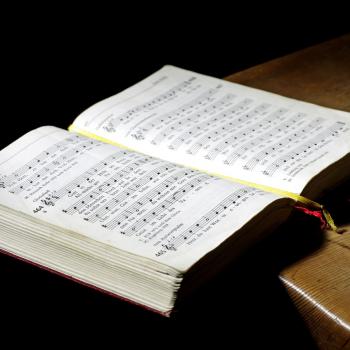This great old Protestant hymn has found a welcome home in many Catholic parishes. It’s a soothing, gently-rendered interpretation of the 23rd Psalm, written by Henry Williams Baker. Some background:
“The King of Love my Shepherd Is,” a metrical paraphrase of Psalm 23, was written by Baker for the Second Edition of Hymns Ancient & Modern in 1868, and included in the appendix. His friend John Bacchus Dykes (1823-1876), a musical editor on the committee, wrote the tune DOMINUS REGIT ME specifically for it, which is the title of Psalm 23 in the Latin Vulgate translation. Many writers have commented on the compelling beauty of this well-suited tune and text, which British hymnologist Ian Bradley described as a regularity of rhythm and even balance between rising lines in phrases one and three and falling lines in phrases two and four. The unique double rhymes Baker uses in many places at the end of lines two and four are well-enhanced by this tune.
Later, Ralph Vaughan Williams (1872-1958) sought to republish the hymn in The English Hymnal (1906) and was denied the right to use the tune. He then paired Baker’s text with his own arrangement of an Irish Air, ST. COLUMBA.
The hymn opens with a beautiful title for God: “The King of Love.” The first stanza has a calm, familiar feeling of repeated words – “is…His”; “never…forever.” Baker tied in ideas about Jesus as the Shepherd from several different places in Scripture, including John 10:11. The hymn uses a lot of verbs and describes the Shepherd by his actions.
Where streams of living water flow
My ransomed soul he leadeth;
And where the verdant pastures grow,
With food celestial feedeth.Baker references “living” water, possibly from Revelation 22:1, which describes a vision of heaven with living water flowing from the throne of God. The stanza continues to point to heaven with a “ransomed soul” and “celestial food.” But these are not presented in a grandiose way, simply as the good care-taking of the Shepherd in the actions of leading and feeding.
Read more. Baker himself is said to have uttered one of the stanzas as his dying words:
Perverse and foolish oft I strayed,
But yet in love He sought me,
And on His shoulder gently laid,
And home, rejoicing, brought me.












